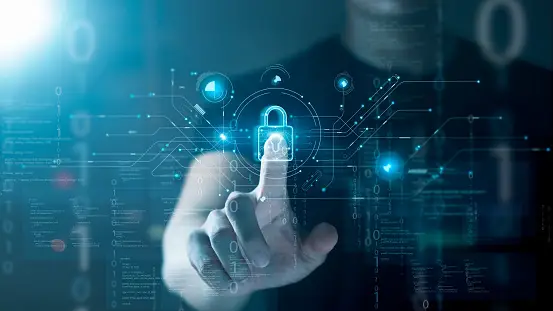
10 Secrets Cybersecurity Experts Reveal In 2023? In today’s digital age, cybersecurity has become a crucial aspect of our lives. With the increasing reliance on technology, cyber threats are evolving and becoming more sophisticated. As a result, it’s essential for individuals and organizations to stay informed about the best practices and secrets shared by cybersecurity experts to protect themselves from malicious activities.
Implement Strong Password Practices
One of the most fundamental yet often overlooked aspects of cybersecurity is the use of strong passwords. Cybersecurity experts recommend using unique, complex passwords that include a combination of uppercase and lowercase letters, numbers, and special characters. Additionally, it’s crucial to avoid using easily guessable information such as names, birthdates, or common words. Regularly changing passwords and avoiding password reuse across different platforms are also essential practices to protect your online accounts.
Enable Two-Factor Authentication
Two-factor authentication (2FA) adds an extra layer of security to your online accounts by requiring a secondary form of verification, usually through a text message, email, or authentication app. Cybersecurity experts highly recommend enabling 2FA whenever possible, as it significantly reduces the risk of unauthorized access even if your password gets compromised.
Keep Software and Systems Updated
Regularly updating your software and operating systems is crucial for maintaining a secure digital environment. Developers often release updates that address security vulnerabilities and patch known issues. Cybersecurity experts advise enabling automatic updates and regularly checking for updates manually to ensure that your devices and software are protected with the latest security patches.
Read More: Celebrating the Diversity of African Masks In 2023
Regularly Back Up Your Data
Data loss can occur due to various reasons, including cyberattacks, hardware failures, or accidental deletion. To mitigate the impact of such incidents, cybersecurity experts emphasize the importance of regular data backups. By backing up your data to an external hard drive, cloud storage, or a secure backup service, you can restore your information in case of emergencies or data breaches.
Be Wary of Phishing Attacks
Phishing attacks are a common method used by cybercriminals to trick individuals into revealing sensitive information such as login credentials or financial details. Cybersecurity experts stress the significance of being vigilant and cautious while dealing with suspicious emails, messages, or links. Avoid clicking on unknown links or providing personal information unless you are certain about the legitimacy of the source.
Use a Reliable Antivirus Software
Having a robust antivirus software installed on your devices provides an additional layer of defense against malware, ransomware, and other malicious programs. Cybersecurity experts recommend using reputable and up-to-date antivirus software to scan and protect your system from potential threats. Regularly updating the antivirus software ensures that you have the latest virus definitions to detect and mitigate emerging threats effectively.
Practice Safe Social Media Habits
Social media platforms have become an integral part of our lives, but they can also pose risks to our cybersecurity. Cybersecurity experts advise being cautious about the information you share on social media and adjusting privacy settings to limit the visibility of personal data. Avoid accepting friend requests or clicking on suspicious links from unknown sources, as these could be attempts to gather information or infect your devices.
Be Cautious When Using Public Wi-Fi
Public Wi-Fi networks are convenient but often lack proper security measures, making them potential breeding grounds for cyberattacks. Cybersecurity experts recommend exercising caution when connecting to public Wi-Fi networks, especially for activities that involve sensitive information or financial transactions. It’s advisable to use a virtual private network (VPN) when accessing public Wi-Fi to encrypt your data and protect it from eavesdropping or interception.
Educate Yourself and Your Team
In the ever-evolving landscape of cybersecurity, knowledge is power. Cybersecurity experts stress the importance of continuous education to stay updated with the latest threats and preventive measures. It’s crucial to invest time in understanding common attack vectors, recognizing potential red flags, and adopting secure practices. Furthermore, organizations should provide cybersecurity training and awareness programs to their employees to foster a culture of security.
Develop an Incident Response Plan
Despite taking preventive measures, cyber incidents can still occur. Having an incident response plan in place is vital to minimize the impact of a security breach and enable a swift recovery. Cybersecurity experts recommend developing a comprehensive incident response plan that includes defined roles, communication protocols, backup strategies, and steps to investigate and remediate security incidents.
Conclusion
In an increasingly interconnected world, cybersecurity has become an absolute necessity. By implementing the ten secrets shared by cybersecurity experts in 2023, you can enhance your online security and protect yourself from various cyber threats. Remember to implement strong password practices, enable two-factor authentication, keep your software and systems updated, regularly back up your data, and be cautious of phishing attacks. Additionally, use reliable antivirus software, practice safe social media habits, exercise caution when using public Wi-Fi, educate yourself and your team, and develop an incident response plan.
FAQs
Q1: How often should I change my passwords?
A1: It is recommended to change your passwords every three to six months or immediately if you suspect any compromise.
Q2: Are free antivirus programs reliable?
A2: While some free antivirus programs offer basic protection, it’s advisable to invest in a reputable paid antivirus software for comprehensive security features and timely updates.
Q3: Can I use the same password for multiple accounts if it’s strong?
A3: No, it is not recommended to use the same password for multiple accounts, as it increases the risk of multiple accounts being compromised if one password is breached.
Q4: What should I do if I suspect a phishing attempt?
A4: If you suspect a phishing attempt, do not click on any links or provide personal information. Instead, report the suspicious email or message to the relevant organization or delete it.
Q5: How often should I back up my data?
A5: It is recommended to back up your data regularly, depending on the frequency of changes and the importance of the data. Aim for a backup schedule that ensures minimal data loss in case of an incident.












3 Comments